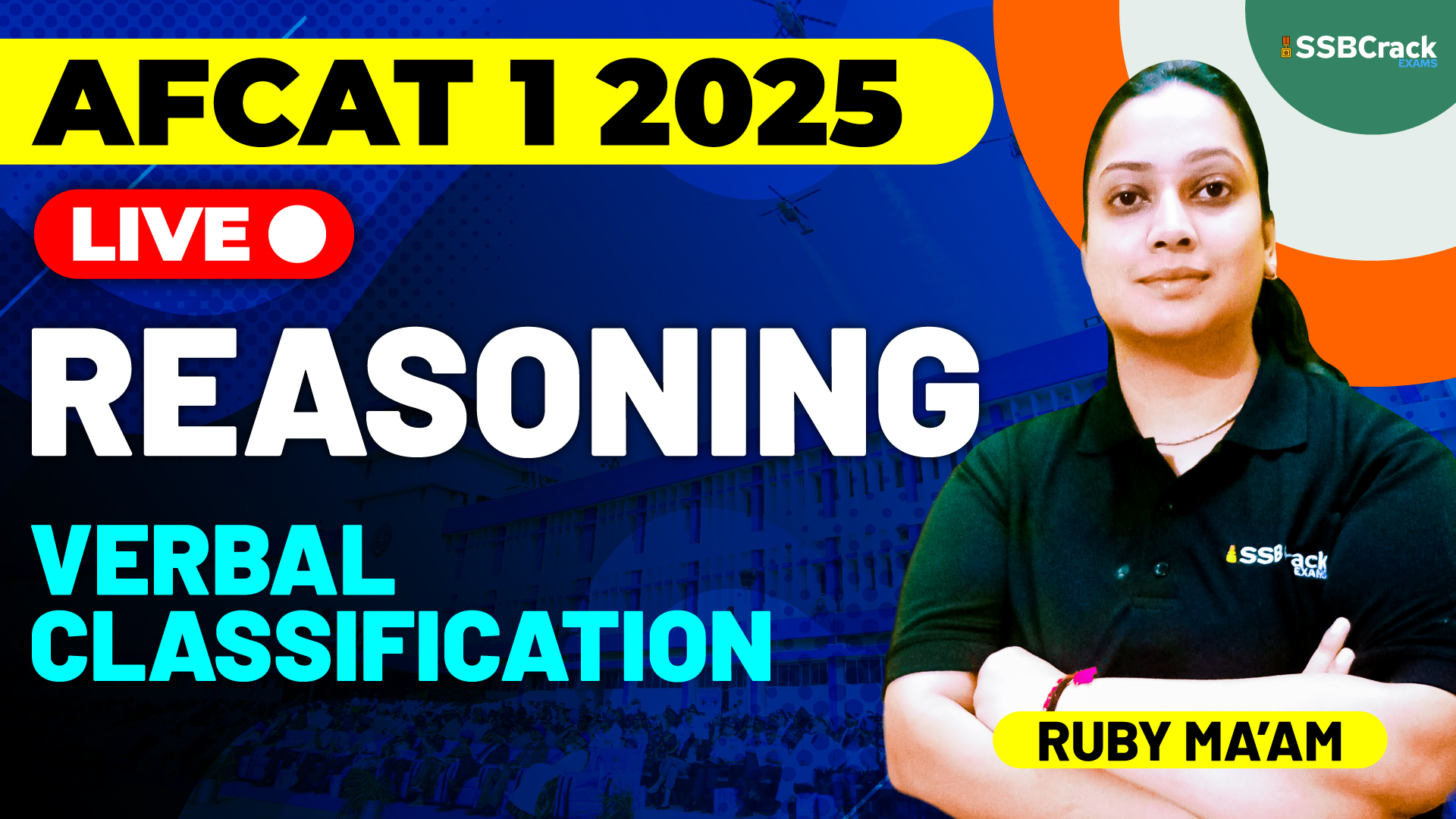Verbal Classification is an essential component of the reasoning section in various competitive exams, including the Air Force Common Admission Test (AFCAT). It evaluates an aspirant’s ability to recognize patterns, identify relationships between words, and categorize them into relevant groups based on their similarities or differences. For AFCAT aspirants, mastering verbal classification is crucial for several reasons.
1. Understanding and Improving Logical Thinking
Verbal classification problems are designed to test an aspirant’s logical thinking and analytical abilities. The questions typically require identifying a common theme or characteristic that connects a group of words. For example, words might be related by category, function, or meaning. Practicing these questions helps sharpen logical reasoning skills, which are essential not only for the reasoning section of the AFCAT but also for decision-making processes in real-world scenarios.
2. Boosting Vocabulary and Language Skills
Verbal classification questions often include a variety of words, ranging from common to relatively uncommon terms. As aspirants work through these questions, they naturally expand their vocabulary, which can be beneficial for other sections of the AFCAT, such as English language comprehension. A strong vocabulary also aids in verbal communication, a skill that is valuable during the interview and group discussion stages of the AFCAT selection process.
3. Enhancing Speed and Accuracy
In competitive exams like AFCAT, time is a crucial factor. Verbal classification questions are generally less time-consuming if an aspirant has practiced sufficiently. They require quick identification of patterns and relationships between words. With regular practice, aspirants can improve their ability to solve these questions quickly and accurately, maximizing their chances of scoring well in the reasoning section.
4. Developing Critical Thinking
Verbal classification encourages aspirants to think critically by evaluating different aspects of a set of words. For instance, words can be classified based on their meaning, usage, or relationship to one another. This process helps in honing critical thinking skills, which are important not only for the exam but also for problem-solving in professional life. In the Air Force, quick and accurate decision-making is often required under pressure, making this skill indispensable.
5. Scoring Potential in Reasoning Section
The reasoning section of AFCAT is designed to test the aspirant’s ability to think logically and analytically. Verbal classification questions are usually straightforward and, with practice, can be answered correctly with minimal effort. Since they carry equal weight as other reasoning questions, focusing on verbal classification can help aspirants secure easy marks. This can be a strategic advantage when aiming to maximize overall scores.
6. Application in Real-Life Problem-Solving
Verbal classification is not just about solving word puzzles in an exam—it also reflects the ability to classify and organize information in everyday life. In the Air Force, personnel are often required to analyze data, categorize it, and make decisions based on patterns and logical relationships. The skill of verbal classification directly contributes to better decision-making and task management, both of which are vital in a military career.
7. Improving Attention to Detail
Verbal classification problems require aspirants to pay close attention to subtle differences and similarities between words. This attentiveness is an important trait in the military, where attention to detail can be critical to the success of missions and operations. The practice of solving verbal classification questions fosters a meticulous approach, which can help AFCAT aspirants not only in their exams but also in their future careers in the Air Force.
Tips for Mastering Verbal Classification for AFCAT:
- Regular Practice: Consistent practice is key to becoming proficient in verbal classification. Solving a variety of questions will expose you to different word patterns and themes.
- Expand Vocabulary: Improve your vocabulary by reading regularly. This will help you recognize word meanings and relationships more easily.
- Time Management: Practice under timed conditions to improve your speed and efficiency in solving these questions during the actual exam.
- Focus on Logic: Always look for logical relationships between words, such as synonyms, antonyms, categories, and functions.
- Use Flashcards: Create flashcards with different categories of words to enhance your ability to quickly recognize patterns.
Conclusion
Verbal classification is a vital skill for AFCAT aspirants. It not only contributes to a higher score in the reasoning section but also improves overall language skills, critical thinking, and attention to detail—qualities that are essential for a successful career in the Indian Air Force. By investing time and effort into mastering this topic, aspirants can give themselves a competitive edge in the AFCAT exam and beyond.







